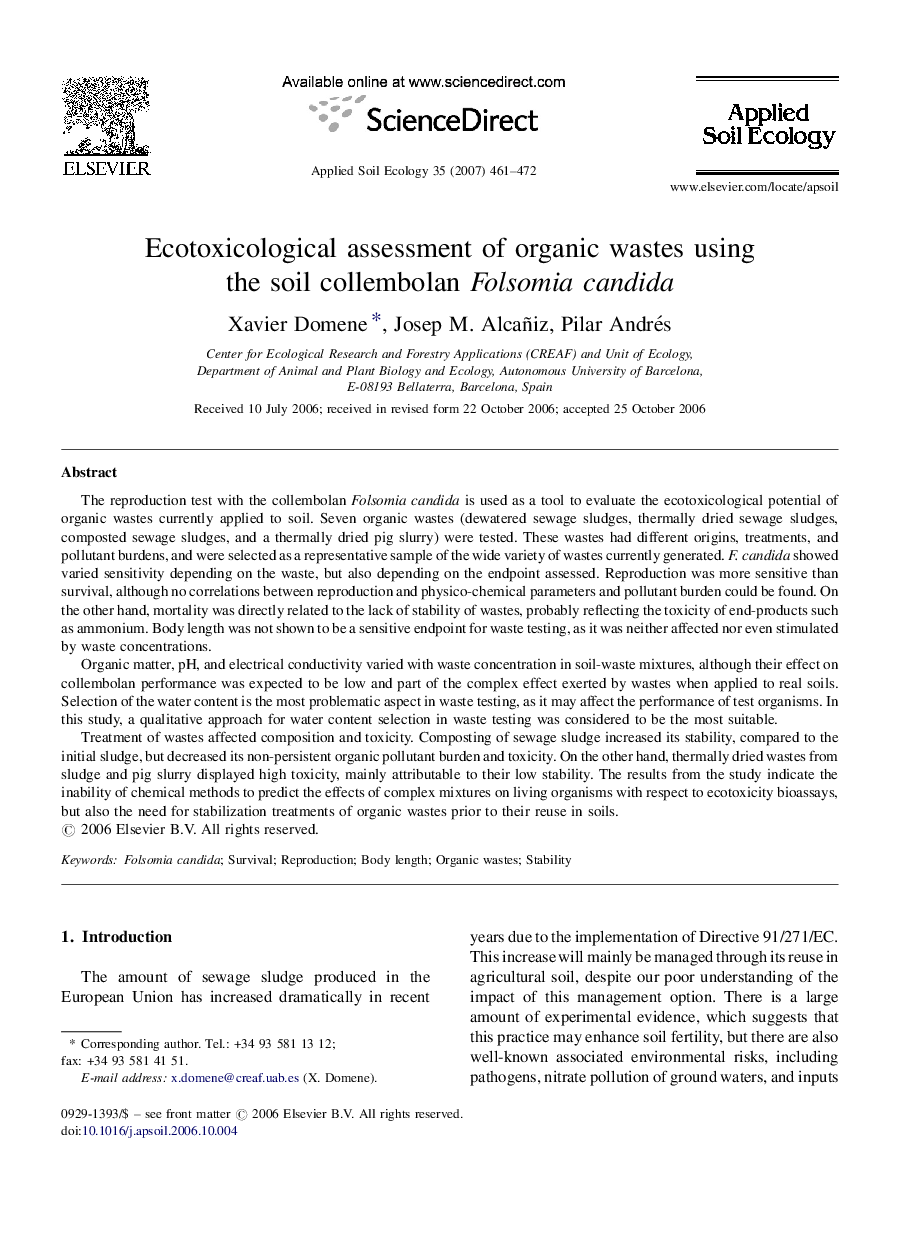| Article ID | Journal | Published Year | Pages | File Type |
|---|---|---|---|---|
| 4383238 | Applied Soil Ecology | 2007 | 12 Pages |
Abstract
Treatment of wastes affected composition and toxicity. Composting of sewage sludge increased its stability, compared to the initial sludge, but decreased its non-persistent organic pollutant burden and toxicity. On the other hand, thermally dried wastes from sludge and pig slurry displayed high toxicity, mainly attributable to their low stability. The results from the study indicate the inability of chemical methods to predict the effects of complex mixtures on living organisms with respect to ecotoxicity bioassays, but also the need for stabilization treatments of organic wastes prior to their reuse in soils.
Related Topics
Life Sciences
Agricultural and Biological Sciences
Ecology, Evolution, Behavior and Systematics
Authors
Xavier Domene, Josep M. Alcañiz, Pilar Andrés,
